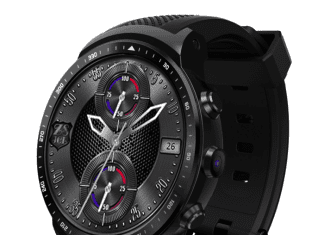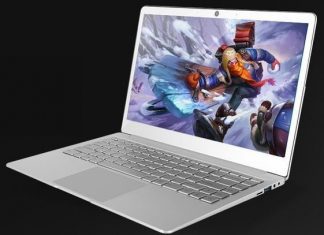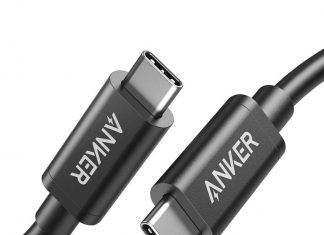Back in 2017, the Federal Communications Commission announced the rolling back of privacy rules barring broadband Internet Service Providers (ISPs) from sharing or selling customers’ web and personal data.
Choosing Your VPN
As such, more and more people are using VPNs to protect their web privacy. While using a VPN offers many privacy advantages and offers plenty of value, not all of them are created equal. In fact, some VPNs end up doing the opposite of what they’re supposed to do by tracking and selling your online activity data. As such, choosing the right VPN provider is very important. Here’s a review of PrivateVPN to help you decide.
Why Should You Use A VPN?
A VPN, or Virtual Private Network, is a tool that enables you to obfuscate your connection from your PC, smartphone, or tablet to the Internet. In other words, it lets you browse privately and securely by encrypting your data and hiding your location.
Businesses often use VPNs as it allows employees to access the office network when they’re working remotely. As authorization is needed to access private networks, companies don’t have to worry about cyber attacks, leading to sensitive business data being leaked or stolen.
What Does A VPN Do?
People use VPNs for two main reasons. The first is to change its location. A VPN changes your current IP address and then redirects your Internet connection through a remote server. For example, if you’re in the US but choose a VPN server in the UK, your IP address will then reflect that you’re in the UK. As such, you’ll be able to access websites that are available in that region.
The second reason is to encrypt their data and protect your privacy. VPN encryption will help you to protect your internet traffic, and it hides your online footprints. This helps you because your ISP (Internet Service Provider) will not be able to sell your browsing history. Furthermore, if you connect to a public Wi-Fi, you may be vulnerable to hackers or even government agencies who may track and even steal your data on public hotspots. However, using a VPN gives you an added layer of protection, and you don’t have to worry about having your data monitored or stolen.
Using A VPN Doesn’t Guarantee 100% Anonymity
One common misconception that people have about VPNs is that they make you totally anonymous online. Though some VPN providers may claim as such, this is not true. Every website has at least one piece of information that can be used to distinguish different users, such as a user’s IP address. Though a user’s IP address alone may not reveal any private details, it can still be associated with other similar information that can eventually be used to identify the user. Websites will also know whenever a user logs into their account, regardless if you use a VPN or not.
Besides, governments can determine whether you’re using a VPN service. In some cases, legal authorities are even allowed to retrieve a user’s online data from their VPN provider. Though the type and amount of data that governments can retrieve vary from country to country and VPN providers’ policies, it’s better to regard VPNs as additional cybersecurity instead of something that can provide you with total online anonymity.
VPNs, by their nature, can be slow because they work by encrypting your data and sending it to another server. While some VPN providers provide fast servers, others may be slow and have connection performance issues. As such, this raises the tricky question of which VPN you should pick.
Which VPN Should You Pick
With the multitude of VPN providers out there, finding the right one is hard. When you install a VPN, you do so for the purpose of ensuring data security. However, just about anyone is able to set up a VPN.
Ideally, VPNs should be made for the sole purpose of offering privacy and a secure connection to Internet users. But there are some that are interested solely in making profits and set up VPNs for the sake of collecting and selling data.
Be Wary Of Using Free VPNs
You should be careful if you stumble across any VPN providers that offer their services for free. There are thousands of free VPNs that are available for download and promise to provide data protection and security for users. Unfortunately, some free VPNs bring a user more harm than good.
Operating and maintaining a VPN service is difficult and costly. A service that is free to consumers will need to recover its cost elsewhere. Free VPN services do so by tracking your online activity and selling your data. As such, the price of a VPN service is usually the first thing you should look at when choosing a VPN.
Seek advice from people who are experienced in cybersecurity. Search up reviews and articles online to make an informed decision about which VPN you should choose. But, be wary of those that may be sponsored by VPN providers to advertise their service.
How To Set Up And Use A VPN
Thankfully, setting up a VPN is simpler than choosing one. After picking a VPN provider, you normally have to download a VPN client on your device. After logging into your account, you just have to pick a server, and you’ll be able to surf the web privately and securely.
You’ll generally be able to choose from servers in various countries. If you’re in Singapore but would like to surf a website that’s only accessible from the US, simply choose a server from the US, and you’ll be able to access the website.
Your VPN client will also be able to provide you with information such as the status of your connection with the server and connection performance. If the VPN client shows that you’re experiencing poor connection performance, you can try switching to a different server as there may be too many users connected to the same server.
Conclusion
Using a VPN comes with many benefits, and it’s definitely recommended for those who want added cybersecurity and data protection. Just remember that VPNs don’t offer 100% protection and anonymity, and you should look up other methods that help to protect your online privacy.













